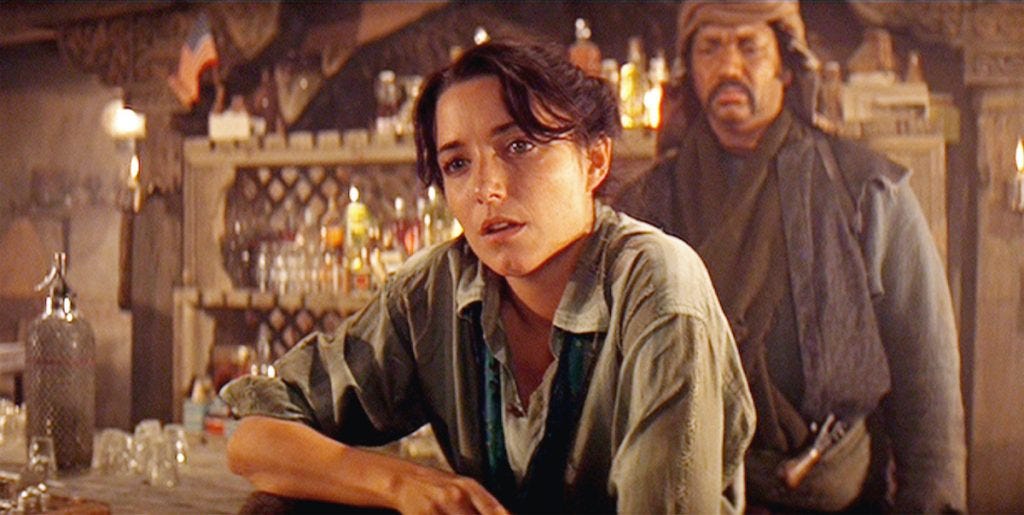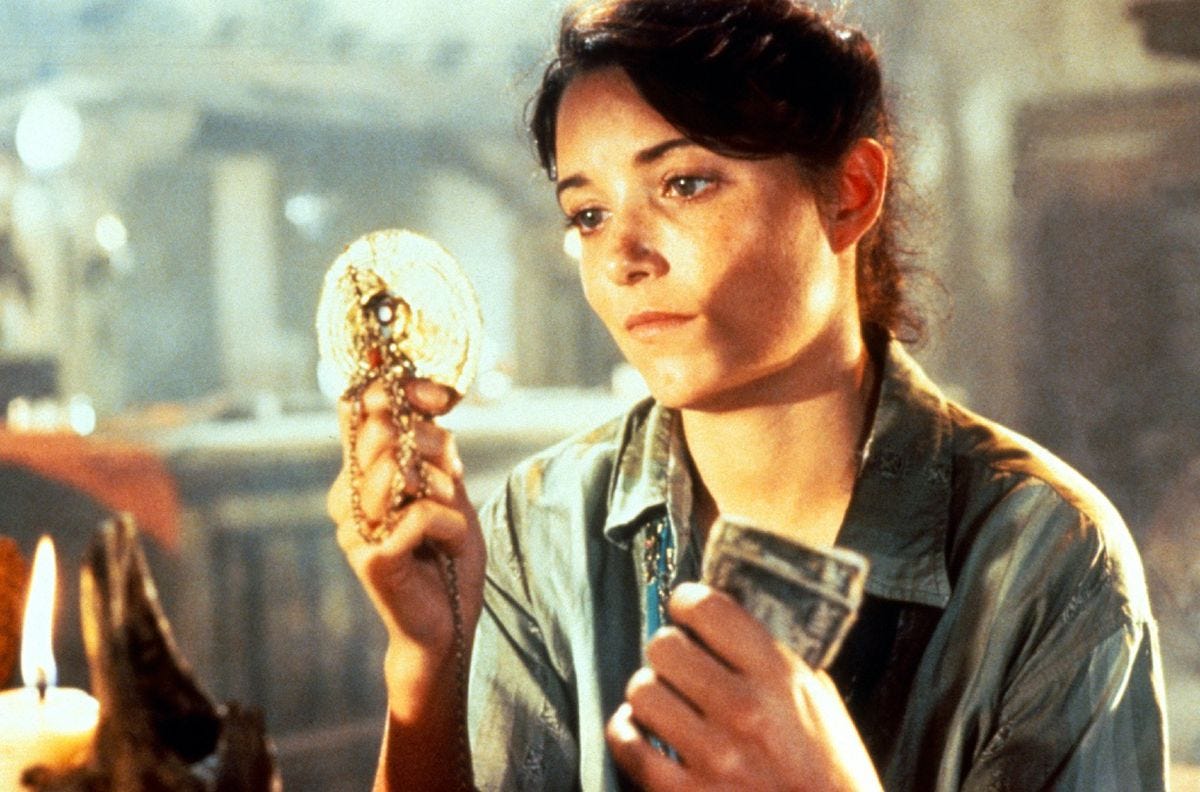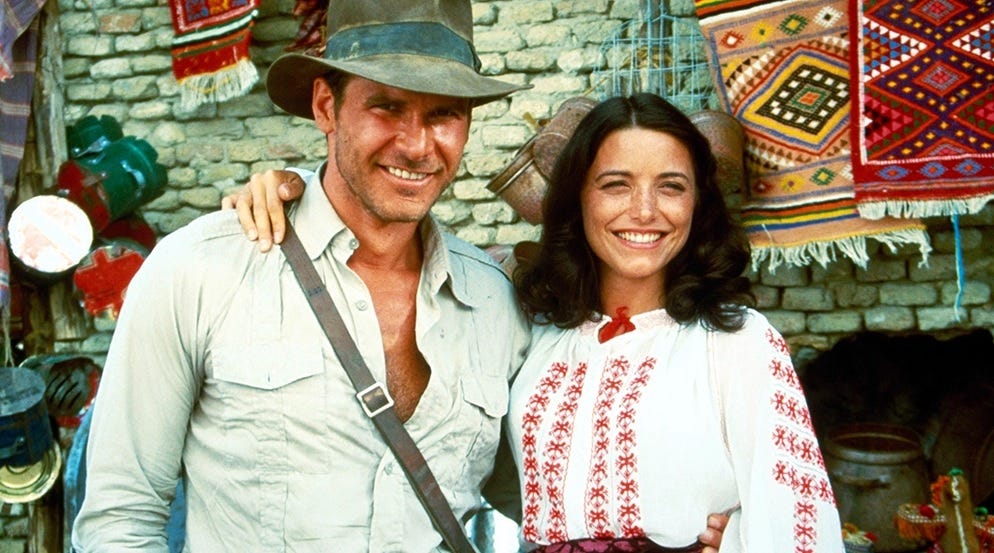Karen Allen on Marion Ravenwood and the Legacy of Raiders of the Lost Ark
The time I got to interview my childhood action heroine – a throwback to my early days as a film journalist.
Back in 2021, I was just starting out as a film journalist. The dream of a Hollywood adventure had been with me since I was a kid, and as soon as I was able, I found myself at film schools in London, Sydney, and Norway. But life happened, and Hollywood didn’t, so I became what I once swore I never would: a film critic!
Well, to be fair, a film journalist. And after a bit of fumbling around and battling my own imposter syndrome, I had my first real brush with that childhood dream — an interview with my biggest childhood heroine, Karen Allen, aka Marion Ravenwood from the Indiana Jones franchise.
It was 2021, the 40th anniversary of one of my all-time favorite films, Raiders of the Lost Ark. A friend who’d recently started at what was then Paramount+ asked if I’d like to interview Karen Allen for a Norwegian website. Unsure of myself, the imposter syndrome hit hard — I said yes, but I spent the next about four weeks both thrilled and dreading the day I would talk to Marion Ravenwood herself!
And yet, of course, Karen Allen was as gracious and kind, putting this newbie film journalist instantly at ease. It was a brief interview over the phone (of all things!). Still, in that short time, we covered so much: her iconic character Marion Ravenwood (my first movie crush!), her role in the franchise, Marion’s independent streak, and the enduring strength of her character.
So here it is — my first real interview, updated and translated. Enjoy.
When we first meet Marion in Nepal, she’s in a unique situation, running a bar and drinking the locals under the table. How did you approach creating Marion’s backstory?
Karen Allen: “Well, you know, it was in the script. In fact, it was the scene that they asked me to audition with. So, I guess when Steven Spielberg sat down to think about who he might want to cast in this role, there was quite a group of actresses he had to consider. And I know he auditioned a number of people, but he sent me that scene, the scene in the bar. And that was really all of the script I had read up until that point."
"I lived in New York, and he had me fly to Los Angeles and do some screen tests and auditions. So, I really fell in love with Marion in the process of just really working on that one scene. I thought it was such a beautifully written scene, and I thought it was an extraordinary way to introduce a character. We come upon her as she’s knocking back shots across the table from this 400-pound man, with people crowded around, betting on who will pass out first. It was a wonderful way to bring a character into a story.”
There’s a sense of history between Marion and Indy. Can you share any thoughts on their past and what it means for their relationship?
“The only thing we know is that he was a student of her father’s and that they had a bit of a flirtation. I think Marion was clearly in love with him, and then he vanished. We talked about it quite a bit in terms of what the story was, and I gave it a great deal of thought. I was convinced that they had developed a close relationship. How close, I don’t know, because she would have been maybe 16 or 17 at the time, and her father was frustrated because he didn’t want him involved with his daughter."
"Indy just disappeared one day, and she felt betrayed or hurt. What I love about her too is that instead of going into a psychological conversation about how she feels, she just pops him in the face. It’s such a simple and direct expression of her feelings.”
At the time Raiders was made, strong female leads were less common. Was Marion always intended to be such a strong character, and did you ever feel pressure to conform to the “damsel in distress” trope?
“It’s interesting because Marion is introduced as this strong, independent woman living on her own in Nepal after her father’s death, surviving by running a bar. But as the script progressed, there were times she leaned a bit toward the damsel in distress stereotype, which I was very much against. Even though it can be fun to play the damsel card, I felt that we needed to stick with the strong character we started with."
"I often went to Steven and shared my thoughts on how we should portray Marion, to keep her as resourceful as possible. I think the film was meant to be a celebration of a certain type of film from the '50s and '60s, where women often played the damsel role. But it was fun to push Marion beyond that. Whenever she seemed unsure or passive, I suggested things she could do to stay active rather than just waiting to be rescued.”
I’ve read that Harrison Ford wasn’t initially cast as Indy. Can you tell us a bit about the casting process and how you and Harrison ultimately became the leads?
“Yes! Steven had seen me in a few films directed by his friends, like Animal House with John Landis and The Wanderers with Phil Kaufman. When he started casting, he asked to meet me. So, he flew to New York, and we spoke for maybe 15 minutes. A month later, he invited me to LA to do some screen tests with a few actors."
"Tom Selleck was actually cast as Indiana Jones, but he couldn’t get out of his Magnum PI contract, so he had to let the role go. I screen-tested with actors like Tim Matheson and John Shea. After a couple of weeks, I got the call that they were offering me the role. They still had no Indy, though. Harrison was around because of the Star Wars films, and somewhere along the line, they realized he could play both Indiana Jones and Han Solo."
"Interestingly, I think Indiana Jones was always intended to be a three-film series, but my character was only set to appear in the first. They wanted to go back in time for the sequels, so they’d have needed a younger Marion anyway.”
Forty years later, Raiders of the Lost Ark is still beloved by audiences worldwide. What’s it like to see this film endure for so long?
“It’s incredible that the films have lasted this long and become so iconic. It’s extraordinary to me. You do a lot of work as an actor, and some films have their moment when they open but then fade into obscurity. But films like this are celebrated every decade, with new audiences discovering them."
"It’s very satisfying, and I feel so proud to be a part of it. Raiders has this kind of legacy that moves forward in the world. I’ve been in places like small towns in Chile, and someone will recognize me as Marion Ravenwood. It’s amazing. This film does what movies should do — it brings people together.”
And that’s it. Looking back, it’s hard to believe just how nervous I was. We ended up chatting a bit more, covering a few other topics, until the person moderating the call chimed in to say our time was up. Good times!





